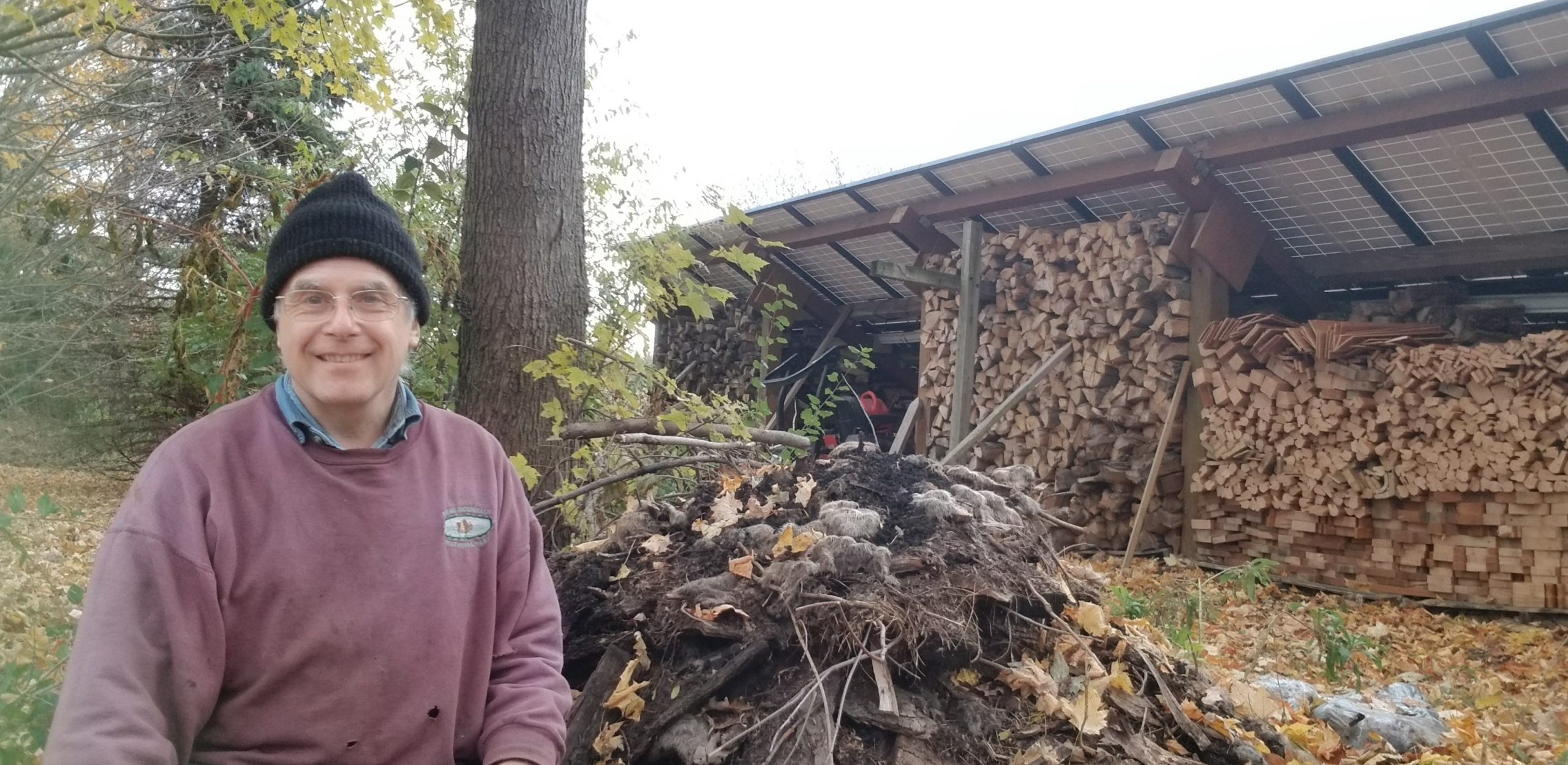Most people today don’t think that hair is valuable, especially after it’s been cut off, but Steve Shantz knows better.
Shantz is a systems operations technician at the Goshen College Physical Plant, and for the past several years, once or twice a month, his barber has sent him a trash bag full of hair. Sometimes he sends it to the Physical Plant, other times he tosses it in Shantz’s yard as he drives past and other times he sweeps up all the hair when Shantz gets his own hair cut.“It’s an experiment,” Shantz said. “You know life is a big experiment, right? And so hair is a protein that is modestly difficult to digest, but it is slowly digestible. So I throw it on my compost piles. It’s an interesting source of organic matter that normally would just be garbage.”
The core concept of this unusual practice, however seemingly weird or gross, is based on good science. When asked how he got the idea, Shantz laughed and said, “Oh gosh, where do my ideas come from? Even God doesn’t know.”
But Shantz knows enough about nitrogen.
“I was a chemistry major and took another year of biochemistry courses, so I know a little bit about biochemistry and things, and so it was like, ‘Oh, this is a potential source of nutrients,’” he said.
It takes a long time for hair to break down, and sometimes little bits of hair can be seen poking through the wood chips in Shantz’s garden.
“It needs to be spread out in the compost,” said Shantz. “If it stays in a lump, it kind of stays as a lump for a remarkably long time.”
The slow decomposition rate of the hair is actually beneficial to his project because the idea is that the hair will continuously break down and provide a long-term source of nitrogen for the garden.
“Basically, the idea is to take a waste stream and use it in a way that should be beneficial in my garden,” Shantz said.
He is wary of products that people put in their hair and how that affects the decomposition process, but he believes that, by using hair from a men’s barbershop, he is minimizing the amount of chemicals in the hair he uses for his compost.
“My maybe biased thinking is that a guy’s barber shop hopefully won’t have as much of that,” he said. “I don’t know how accurate that guess is, but that’s my guess.”
Part of Shantz’s personal objective for his two large home gardens is to avoid bringing in nutrients from outside, which is largely based on his environmental values.
“We make so much trash, you know?” he said. “And in nature, nothing is wasted — we don’t know the first thing about that. Not that this is solving all of the problems, but it’s a little piece of the puzzle. If you look at long-term sustainability: Where are we gonna get our nutrients from? All the nitrogen we put on our fields comes from natural gas unless you’re getting manure, which is sort of cheating because that comes from feed, which comes from synthetic nutrients.”
Shantz’s goal is to find sources of nitrogen for nutrients in his two gardens that are not “cheating,” as he puts it, and that come from waste streams that would otherwise be thrown away. He puts the nitrogen to good use.
Shantz is a supplier for the Elkhart Seed to Feed program, a church community program that provides local produce and protein to Elkhart’s food pantries.
“This year, I grew almost 3,000 onions,” said Shantz, “and almost as much garlic.”
Hair isn’t the only unorthodox source of nutrients in Shantz’s garden. He also uses firewood to heat his house and splits the wood himself, so his pile is largely comprised of wood chips. Along with sticks, branches and hair, he adds a homemade charcoal left over from his maple syrup-esque operation.
“In my maple syrup burners, when I’m done every night, I shovel out the ashes and coals and water them down right away, and then I get this charcoal, which is like a really amazing sponge for nutrients, and so that goes on the pile,” Shantz said. “I try not to throw too many ashes on the pile because that will raise the PH really high and make it not so good, but the charcoal is good.”
Charcoal is not something that most people would think of as beneficial to their garden, but Shantz said, “It’s a good nutrient and moisture sponge, and so if you just put charcoal on your garden it sucks up nutrients out of your garden and for a while not much good happens, but if you can pre-load it in the compost pile before you put it in your garden, then this is good.”
“I don’t use pesticides,” he said. “I am unofficially organic, and I don’t use organic fertilizers. I might as well say it: a lot of my nutrients comes from my pee. It’s just a direct source of nitrogen, phosphorus, potassium and sulphur. I mean, talk about a waste stream that we both literally and figuratively flush down the drain.”
Though the concept of using hair or urine might seem abhorrent to us in modern society, Shantz has been able to repurpose these waste streams in a creative way that promotes healthy plants in his garden.
“For me, it’s just a waste stream that I think could be usable,” he said. “A little weird, but still I think quite useful.”



